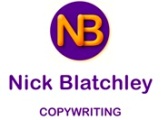
Most, if not all, areas of expertise or professional interest come at a cost: the instinctive pain caused by non-experts getting it spectacularly wrong. I’m sure, for instance, it annoys doctors to hear popular medical fallacies, or accountants to come up against misinformation about tax obligations.
I’m a writer, both by personal interest and profession. Most people aren’t, and I hope I allow for that, as I’d hope artists would be tolerant of my attempts to draw or musicians of my attempts to sing. There are limits, though, and the misplaced apostrophe is one of them.
We’re used to random apostrophes (or perhaps I should say apostrophe’s) outside greengrocers’ shops, which offer for sale “potato’s”, “cabbage’s” or possibly even “this seasons apple’s”. Not to mention liberal and incorrect use of quotes, exclamation marks and pretty much every other punctuation you can think of.
It’s not limited to fruit and veg, though. There’s a business premises just round the corner from where I live that makes me wince every time I have to walk past it. I won’t “out” it, but it uses Herts (short for Hertfordshire) in its name — and yes, it’s spelt “Hert’s”.
Perhaps it shouldn’t be surprising, when even the BBC website makes ridiculous mistakes. One very common typo is the past tense of the verb to lead, which should be led. Unfortunately, this is pronounced the same as “lead” (the metal) and there seems an increasing belief that this is also the past of the verb. Of course, the verb “to read” actually does work that way, but the Beeb should certainly know better.
The same mistake isn’t usually made in reverse, but there is at least one example. Led Zeppelin were one of the greatest rock bands in the world, but they were lousy spellers.
Another journalistic habit that makes me want to stick my head in a bucket of water is the random use of hyphens. A very common example is (to take an example off the top of my head) to describe David Cameron as “the ex-UK prime minister”. Since the hyphen binds the specific words together, that literally means that he’s still a prime minister, just no longer of the UK.
There are many others, and this would turn into a very long rant if I were to list them all. It’s simply an occupational hazard — but I sometimes feel like sneaking out at night in dark clothes and a balaclava to delete apostrophes on signs.
Are there any similar occupational hazards in your profession?
Image reproduced under Creative Commons licence from david_jones
